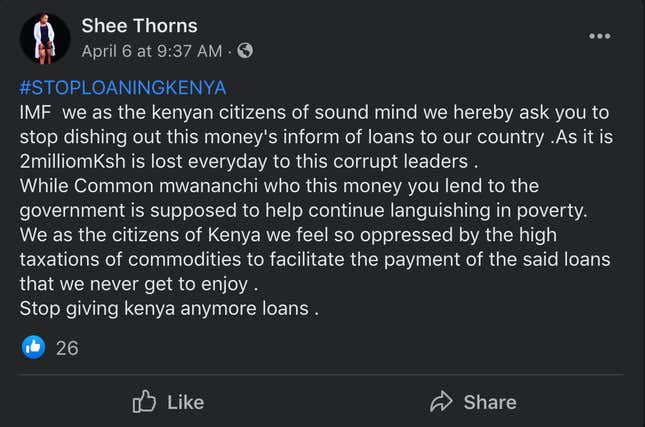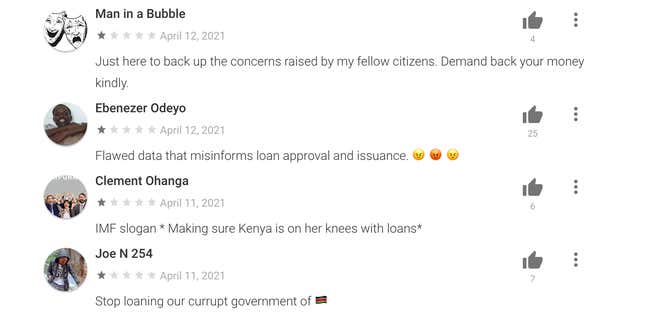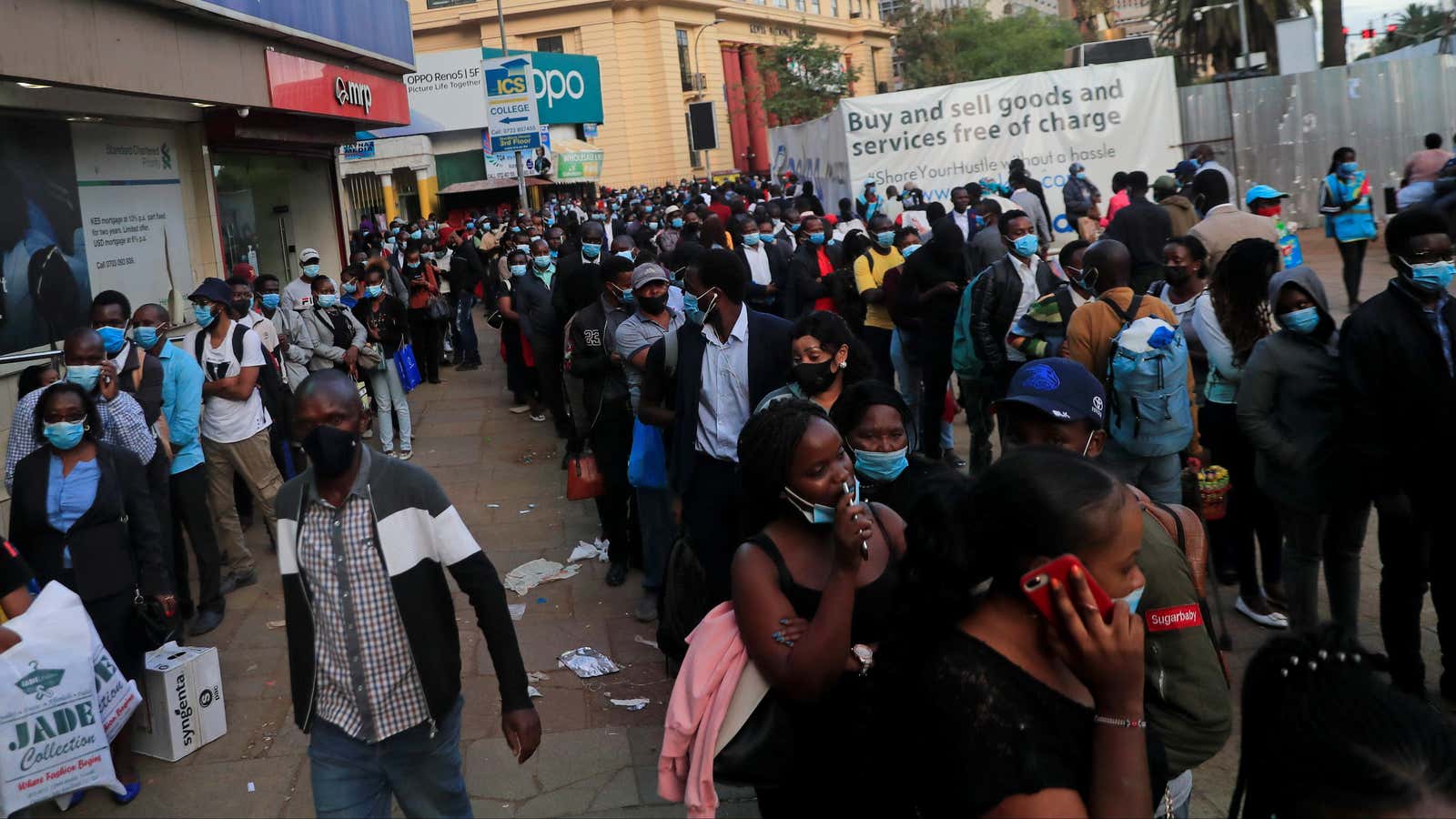Kenyans are petitioning the International Monetary Fund to cancel its approval of a $2.34 billion loan for Kenya, citing mismanagement of funds by the government and the country’s increasing debt load.
Early this month, the IMF approved a three-year financing package to support Kenya’s Covid-19 response and its plan to reduce debt vulnerabilities. But in the latest round of online activism in the country, Kenyans are protesting this move. Using the hashtags #StopLoaningKenya and #StopGivingKenyaLoans, they’re asking the financial institution to cancel the financing arrangement, highlighting citizens’ growing frustration with debt burden and corruption in the East African country.
Over the years, analysts and the public in general have raised concerns about Kenya’s public debt, which has tripled since Uhuru Kenyatta became president in 2013. Billions of these funds end up lost due to corruption, raising questions over how the money is being spent, and leading to protests both online and offline.
Corruption is a problem the government recognizes. In January, president Uhuru Kenyatta said $18.5 million is stolen from the government every day.
The backlash against the IMF loan quickly showed up online.

One campaigner, Edwin Kiama, was arrested on cybercrime charges after posting a “public notice” on Twitter, saying Kenyatta is not authorized to act on behalf of Kenya. Kiama was later released due to lack of sufficient evidence.
The complaints spread to a live Facebook discussion on climate change last week between IMF chair and managing director Kristalina Georgieva and Costa Rican diplomat Christiana Figueres, when Kenyans flooded the comments section.
Outside social media, more than 230,000 people have signed a petition on change.org to the IMF to cancel the loan. “Right now Kenyans are choking under the burden of heavy taxes, with the prices of basic commodities such as fuel skyrocketing, and nothing to show for the previous loans,” the petition says. “The IMF can, and should, do the right thing: keep the cash until Kenyans get themselves a new, hopefully more accountable, administration in office next year,” it further states.
Kenyans have also taken the protests to the IMF’s own app, posting negative comments on its page on the Google Play store and giving it poor ratings.

Kenya’s finance minister, Ukur Yatani, did not respond to a request for comment.
In a statement on its website, the IMF acknowledges that the country is at a high risk of debt distress, and addresses the arrangement’s accountability measures. “A central focus of [Kenya’s] program supported by the [IMF] is a strong multi-year effort to reduce debt and debt vulnerabilities, laying the ground for durable and inclusive growth over the years to come,” it states. “The alternative to this financing is much sharper fiscal consolidation or much more expensive borrowing on commercial terms.”
In addition, an IMF spokesperson said that the loan will support a Kenyan program that is intended to, among other things, strengthen transparency and accountability through an anticorruption framework. He added that IMF’s financing is subject to regular review based on agreed economic performance goals, targets, and best practices. Meeting these agreed objectives entitles a country to draw financial support from the financial institution, the spokesperson said. “Of course, if a country with a financing program wants to cancel a loan, that is its prerogative,” he added.
Kenyans have used this kind of online activism successfully before to seek political and social change, as well as shape the country’s narrative. One of the earliest campaigns took place under the banner “SomeoneTellCNN” in 2015, in which citizens protested CNN’s description of Kenya as a “hotbed of terror.” A senior CNN executive flew to Nairobi to apologize for the coverage.
This post has been updated with additional information from the IMF.
Sign up to the Quartz Africa Weekly Brief here for news and analysis on African business, tech, and innovation in your inbox.
